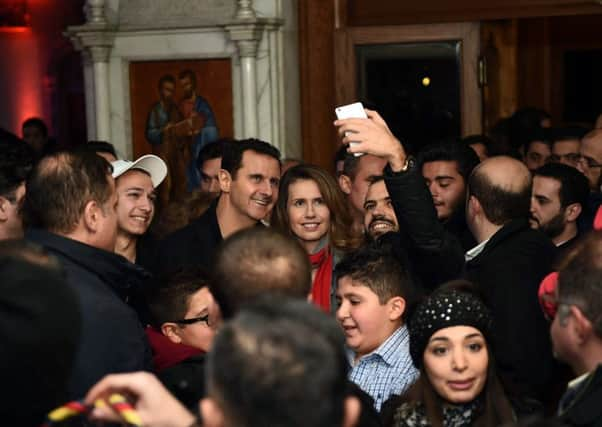UN backing offers hope for solution to Syria


The council’s adoption of a resolution on Friday backing the plan comes amid world powers’ growing sense that the top priority in Syria should be the defeat of the Islamic State group, which has exploited the country’s years of chaos and created a base from which it promotes deadly attacks abroad.
US Secretary of State John Kerry said that the world is going to see in the next few months whether the peace process actually takes hold. He urged key powers, including Syria’s strongest allies Russia and Iran, to match their words with actions.
Advertisement
Hide AdAdvertisement
Hide Ad“Within a month or so, two months, decisions are going to have to start to be made about the devolution of some power” and the creation of a transitional body agreed to by Syria’s government and opposition with full executive power, Kerry said.
But the resolution makes no mention of the most contentious issue, the future role of Syria’s president Bashar Assad.
The United States, its European allies, Saudi Arabia and other Arab nations have insisted that Assad must go, though Kerry said “everyone” has by now realised that demanding Assad’s departure up front in the process was “in fact, prolonging the war.” Kerry said “sharp differences” remain on Assad and stressed that “Assad has lost the ability ... to unite the country.”
Russia and Iran have consistently rejected foreign governments’ calls for Assad’s departure.
UK Foreign Secretary Philip Hammond said the unanimous approval of the UN resolution is a “significant step” towards ending the country’s civil war.
But he accepted that there was “still a very long way to go”.
In a rare show of unity over the conflict, Russia backed the resolution endorsing the start of “urgent” formal negotiations between Assad’s regime and moderate opposition groups early next month.
It says it should establish “credible, inclusive and non-sectarian governance” followed within 18 months by UN-supervised “free and fair elections” with a parallel effort to secure a ceasefire.
Advertisement
Hide AdAdvertisement
Hide AdAny halt to hostilities would not apply to air strikes against so-called Islamic State and other terrorist groups, it makes clear, amid fears they could otherwise benefit.
A peace plan agreed last month by 20 nations meeting in Vienna sets a deadline of 1 January for the start of negotiations.
Addressing the UN meeting, Hammond said: “Sadly it is far too soon for any of us to predict an end to the Syria conflict.
“But I hope that we will look back on today as a significant step in that direction.”
Demanding an end to repeated failures to secure UN agreement over the way forward, he said the international community “have to do better fast if there is not to be still more suffering”.
Russian support for Assad has been the main obstacle to international unity, with President Vladimir Putin insisting the long-standing protégé of Moscow should be allowed to stand in elections to choose any new administration.
Britain remains insistent that Assad can remain in place temporarily as part of a transitional administration, but cannot have a long-term role in government.
There is also disagreement over which opposition groups should form part of the negotiations.
Advertisement
Hide AdAdvertisement
Hide AdHammond took a swipe at Russia over what the West says is its deliberate targeting of moderate Syrian opposition forces in air strikes.
“It is vital that all countries that claim to be fighting Daesh do what they say rather than directing the bulk of their attacks against non-extremist opposition groups,” he said.
“Despite the important step that we have taken with today’s resolution, despite the progress we have made in Vienna, despite the important steps forward taken at the meeting in Riyadh, there is still a very long way to go.”